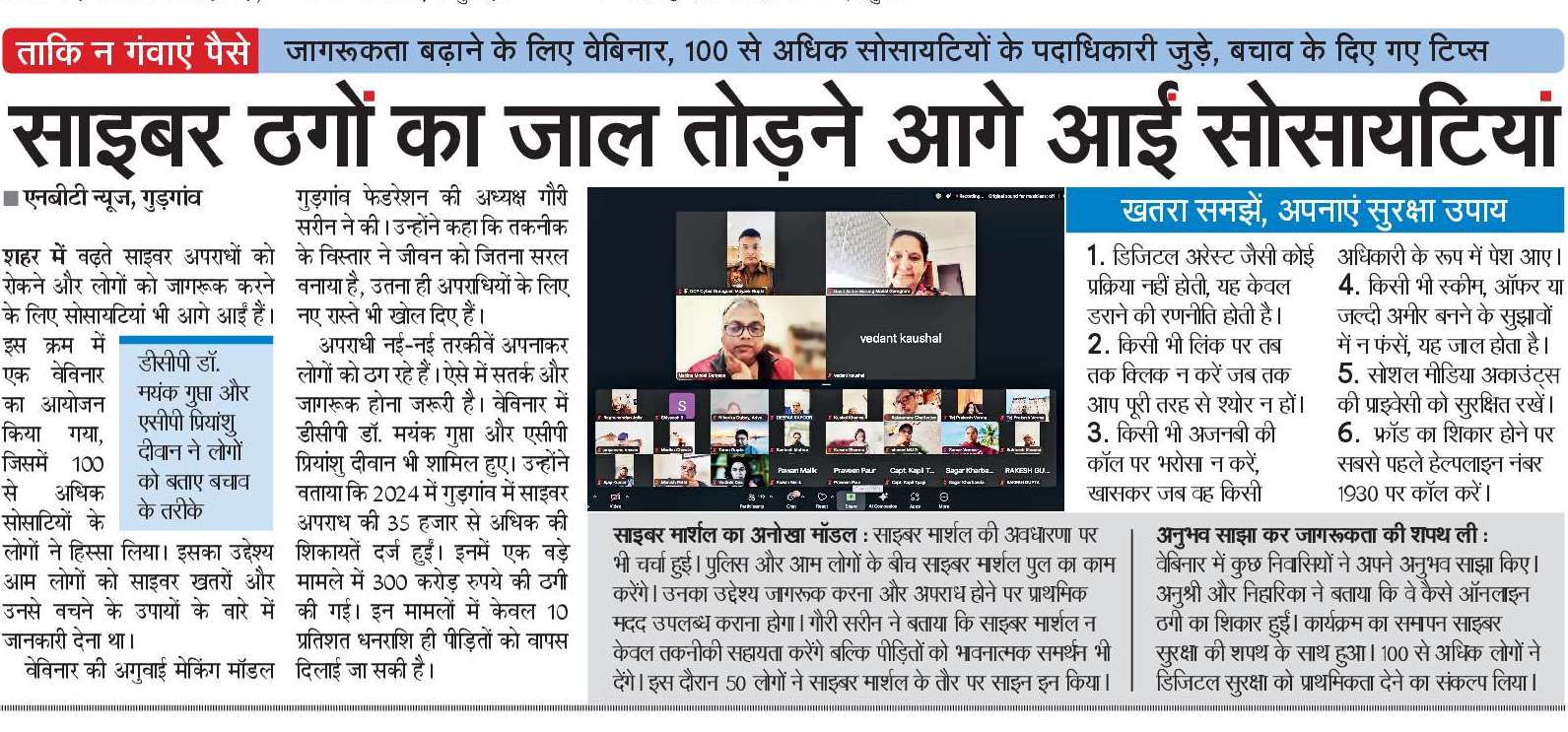Cybercrime Awareness and Prevention Webinar in Gurugram
In a significant initiative to address the increasing menace of cybercrime, a Cybercrime Awareness Webinar was organized under the guidance of Shri. Vikas Arora, Commissioner of Police and leadership of Gauri Sarin, Chairperson of Making Model Gurugram Federation.
DCP East and Cyber Crime Dr. Mayank Gupta and ACP Priyanshu Dewan, were the two eminent expert speakers who addressed the participants about the current scenario and what should be done.
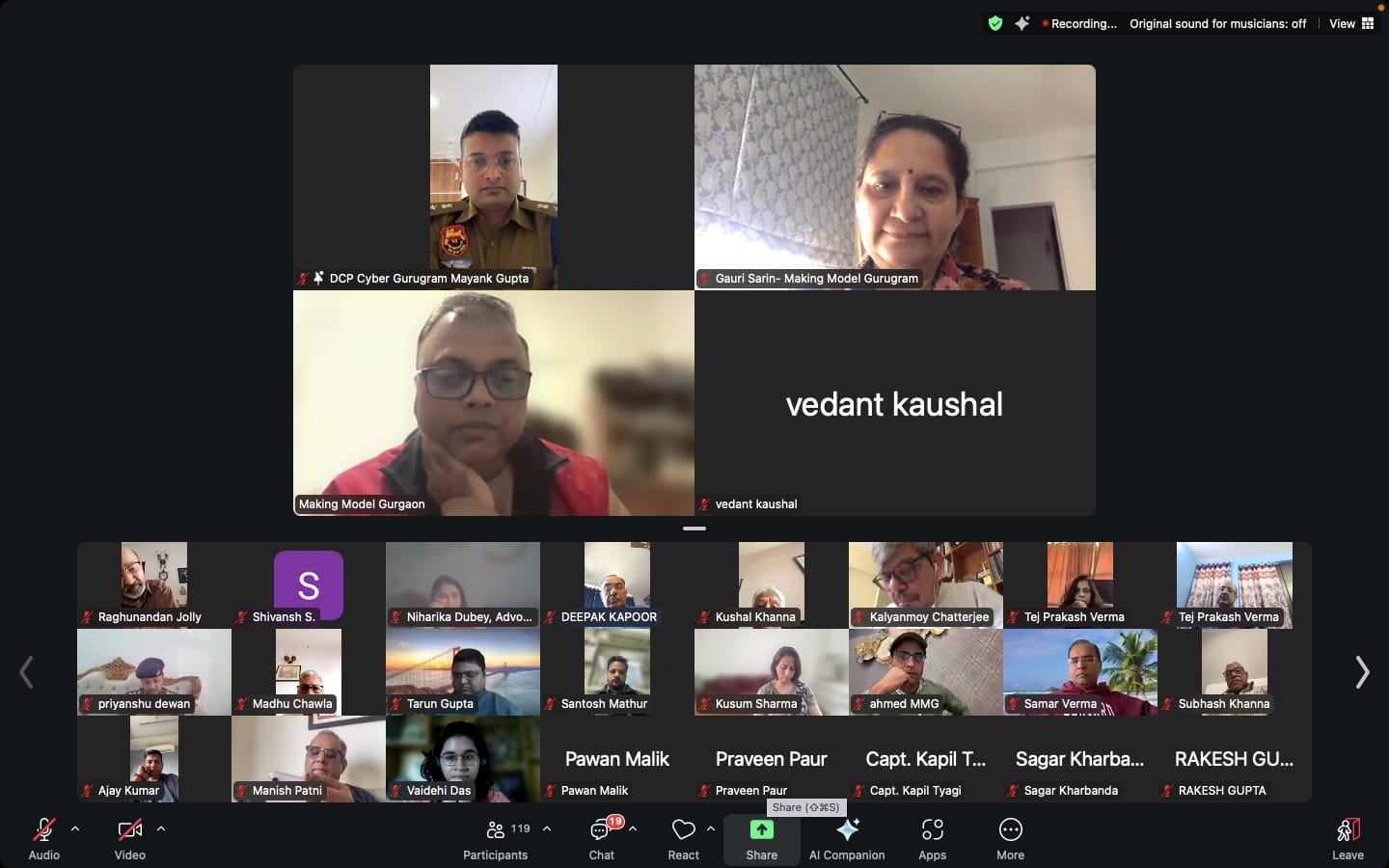
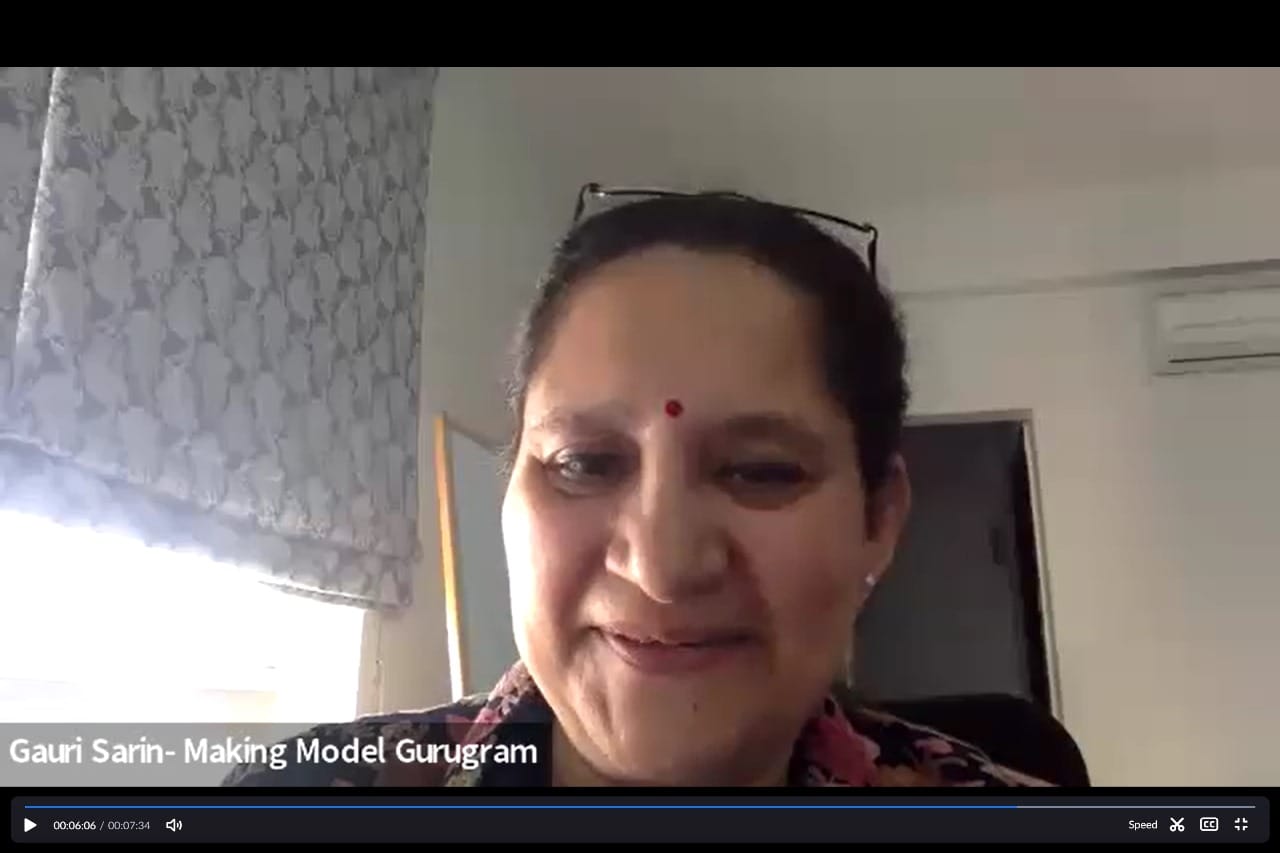
Cybercrime Awareness and Prevention: Understanding the Threat
Gauri began the session by sharing a poignant example from her own experience—a young boy ensnared in a cyber fraud scheme. This story served as a powerful reminder of how cybercrime can affect anyone, regardless of age or awareness. She emphasized the need for:
Informed responses: Recognizing and appropriately handling unrecognized messages or calls, which are often precursors to fraud.
Daily vigilance: Understanding and identifying cyber threats.
Data security: Protecting personal information in an era of increasing digital exposure.
Addressing Cybercrime in Gurgaon
DCP Dr. Mayank Gupta, Cyber Crime and East, Gurugram discussed the issue of cybercrime in Gurgaon, highlighting that in one case about Rs 300 crores were siphoned off and only about 71 crores could be kept on hold and about 31 cr refunded. So basically only about 10% was recoverable even in the case that was solved. He emphasized the importance of awareness and prevention, suggesting the establishment of a dedicated platform for victims to share their experiences.
He stressed the need for stricter KYC measures for account opening to prevent false accounts being opened by bank personnel. Lastly, he mentioned the need for a comprehensive collaborative work to be done on cybercrime and its prevention. He emphasized the need for RWAs and Citizens to come togther to raise awareness as in this case too “Prevention is better than Cure.”
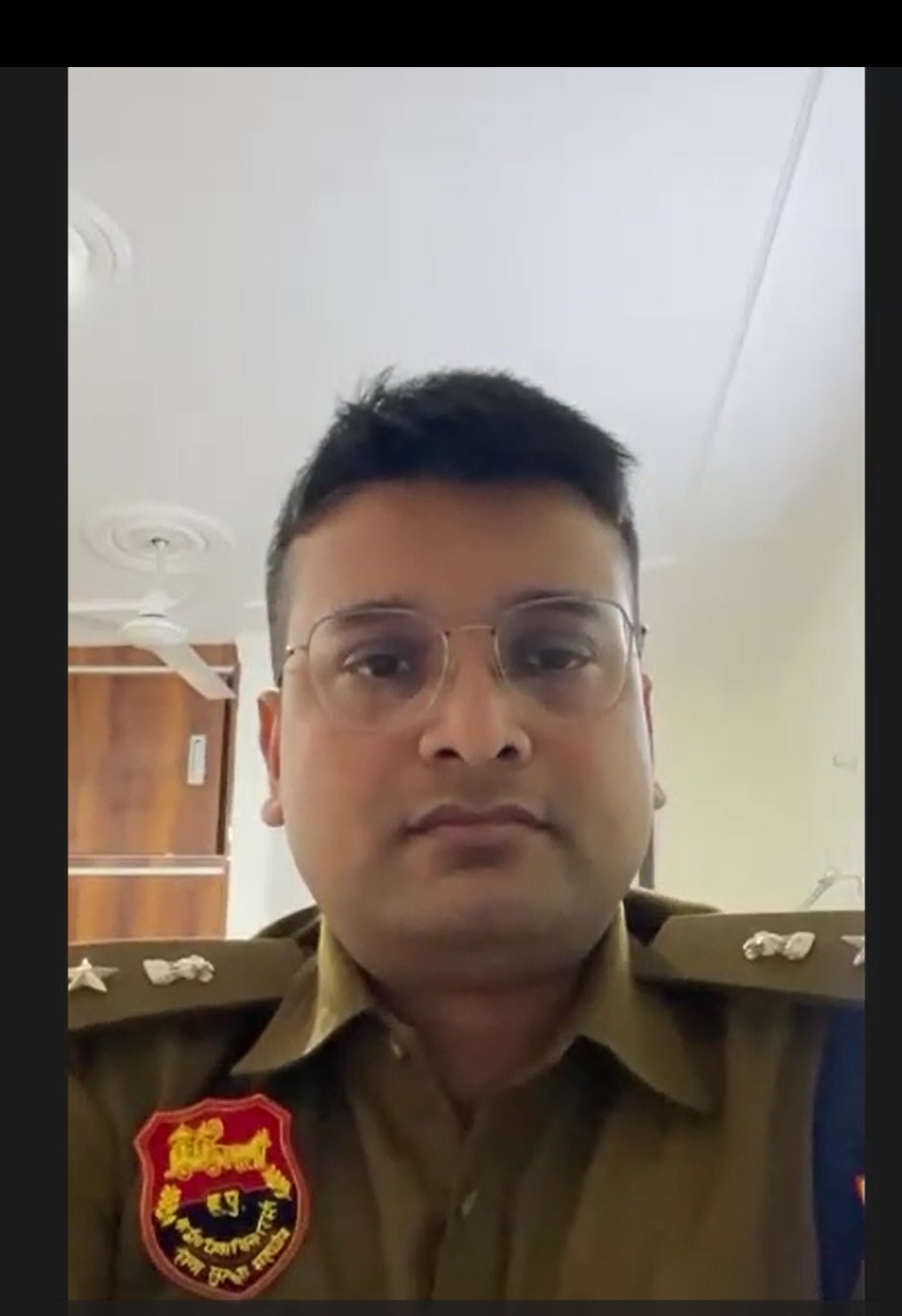
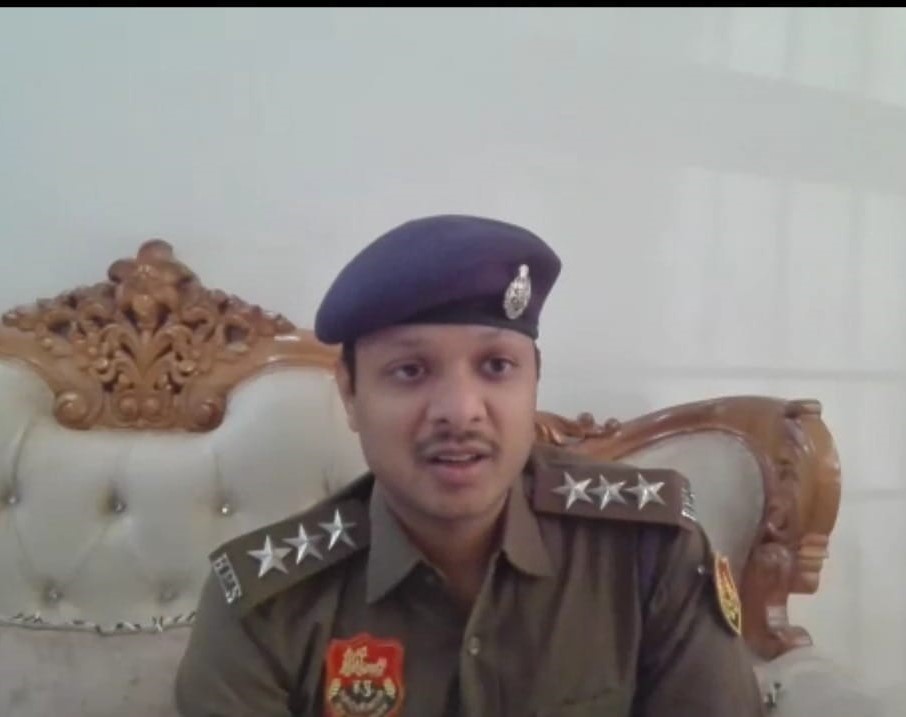
Cybercrime Awareness and Prevention Importance
ACP Priyanshu Dewan discussed the rising number of cybercrime cases in Gurugram, with over 35,000 complaints received in 2024. They emphasized that cybercrime is preventable and not just a technical issue, but also a social and psychological one. They also highlighted the importance of understanding human emotions like greed, fear, and ignorance in preventing cybercrime. Priyanshu also explained the Modus Operandi of a multi-level scam process and why it was difficult if not impossible to trace back the source and recover funds. The speakers also mentioned the arrest of over 1,600 cyber criminals in Gurugram and the involvement of Indians in cybercrime activities in other countries. The conversation ended with a discussion on the need for awareness and prevention of cybercrime. The stage they said is not only national but has become international with deep fake and AI making things easier for scamsters and difficult for common people to comprehend
Gauri shared about some psychological aspects of this social issue
Victims and Culprits
The line between victims and perpetrators of cybercrime can blur, as financial struggles or unemployment may push victims toward illegal activities. This cycle underscores the need for both preventive measures and understanding the socio-economic roots of cybercrime.
Supporting Victims
Victims need empathy, not judgment. Avoid dismissive comments like “How stupid!” Instead, offer support, advice, and guidance to resources that can help them recover and learn from the incident.
When You’re the Victim
Falling victim to cybercrime can cause panic, anger, and depression. It’s essential to act promptly, report the incident, and focus on recovery. Sharing your experience can raise awareness and help others avoid similar pitfalls.
Dealing with Losses
Cybercrime can cause financial, emotional, or even physical harm. Handling victims with sensitivity ensures they feel supported and understood, helping them rebuild trust and resilience.
Roles and Responsibilities of Cyber Marshall
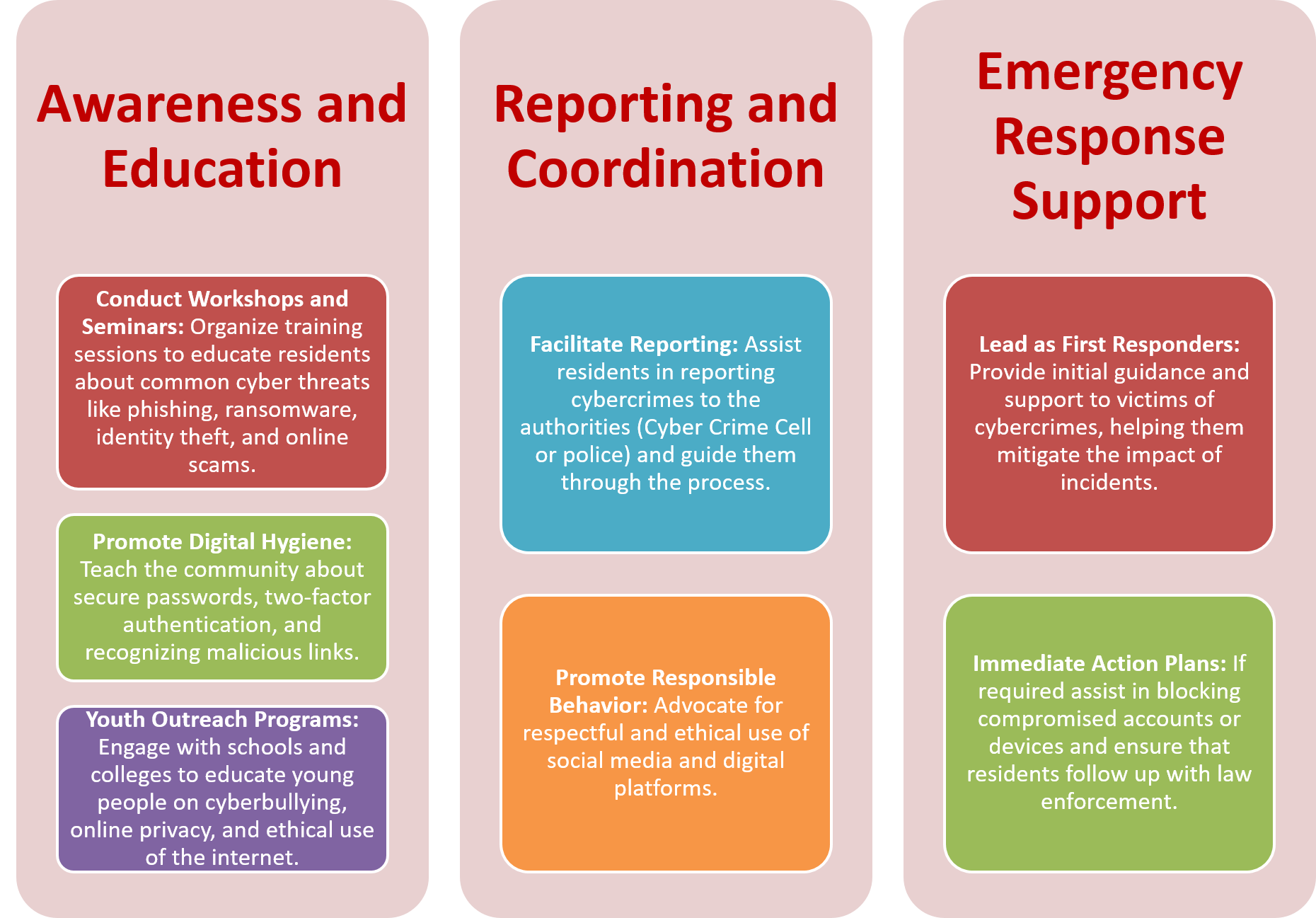
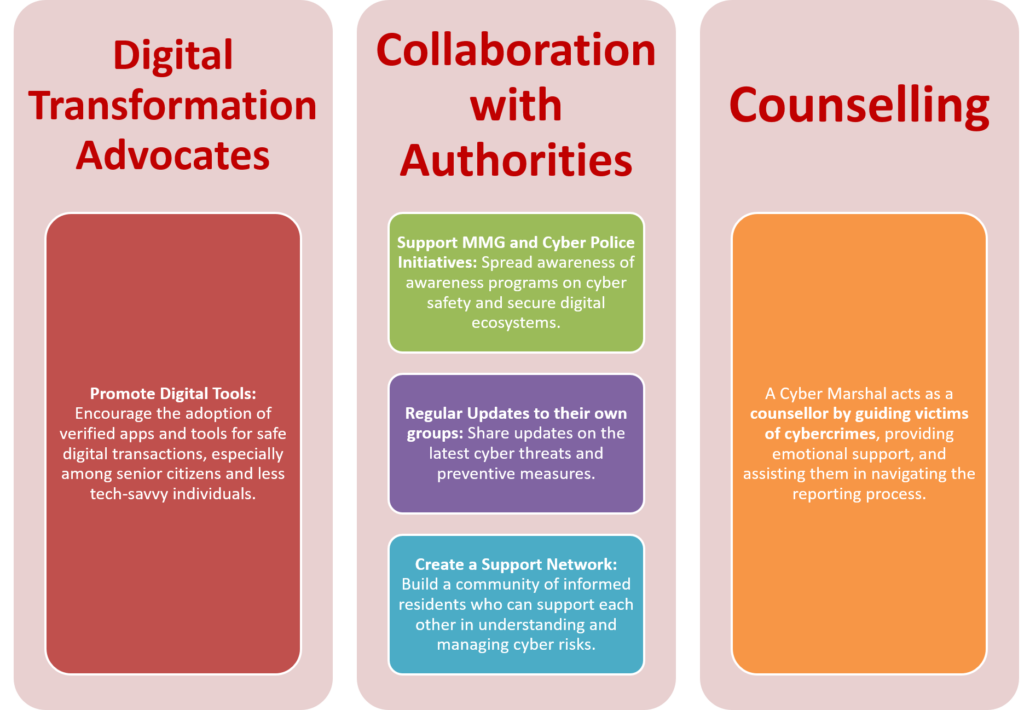
Cyber Marshalls
DCP Gupta and ACP Priyanshu Dewan discussed the pivotal role of Cyber Marshalls as community counselors, educators, and first responders to cybercrime incidents.
o The Cyber Marshals would act as a bridge between citizens and law enforcement, spreading awareness and providing immediate guidance to victims.
o They are responsible for guiding victims, reporting incidents, and fostering digital resilience in neighborhoods.
Dealing with Cybercrime Victims:
o Gauri highlighted the importance of addressing victims’ emotions, ranging from panic and resentment to depression and aggression.
o Victims should be supported sensitively, focusing on financial, emotional, or physical losses they might have incurred.
The Power of Sharing Experiences:
o Participants were encouraged to share their cybercrime stories without shame or fear.
o Gauri emphasized the importance of open communication, not just to learn from others’ experiences but also to prevent further crimes.
At the end of the session, the Cyber Marshall’s who have signed up for the role in their respective areas took a pledge.
Key Learnings from the Session
A) Cyber fraud often succeeds due to certain human psychological factors, primarily:
1.Greed – Falling for too-good-to-be-true offers or deals.
2.Fear – Scammers prey on fear, often threatening legal action or account suspension, leading victims to act in haste. Remember, there is no such thing as a “digital arrest.” Any such claim is a tactic to intimidate you.
3.Ignorance – Lack of awareness about fraud tactics or safeguards.
What You Can Do to Stay Safe:-
A) Never click on any link unless you are 100% sure it’s from a genuine source.
B) Never believe any stranger’s call, especially if you suspect someone may be faking or posing as an authority figure.
C) Never fall for any offer, scheme, or get-rich-quick suggestions—it’s almost always a trap.
D) Check your privacy settings on all social media accounts and ensure they are secure.
E) Keep your email and SMS space cleared to avoid falling prey to phishing attempts disguised as important alerts.
F) In case of fraud, dial 1930 immediately for help. Also register on cybercrime.gov.in
G) Only 29 % of money can be recovered back. Money is transferred to different accounts internationally within minutes.
H) Educate elders and children.
I) Lastly, don’t be ashamed to share if you’ve been cheated through cyber scams. Sharing your experience helps others stay vigilant and avoid falling for similar tricks. Together, we can spread awareness and create a safer online community.
J) Never share OTP to strangers. OTP is never to receive money and only to pay.
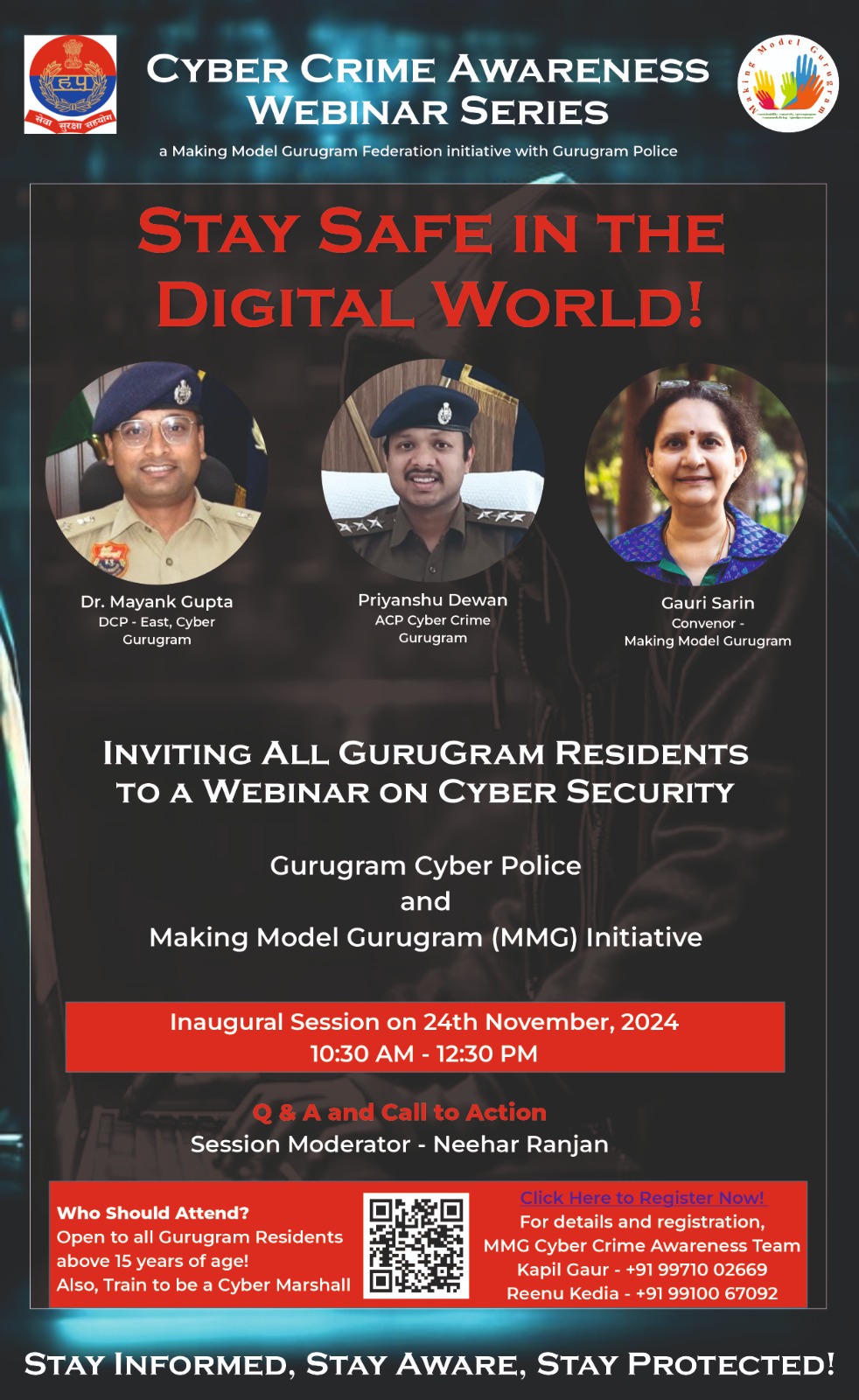
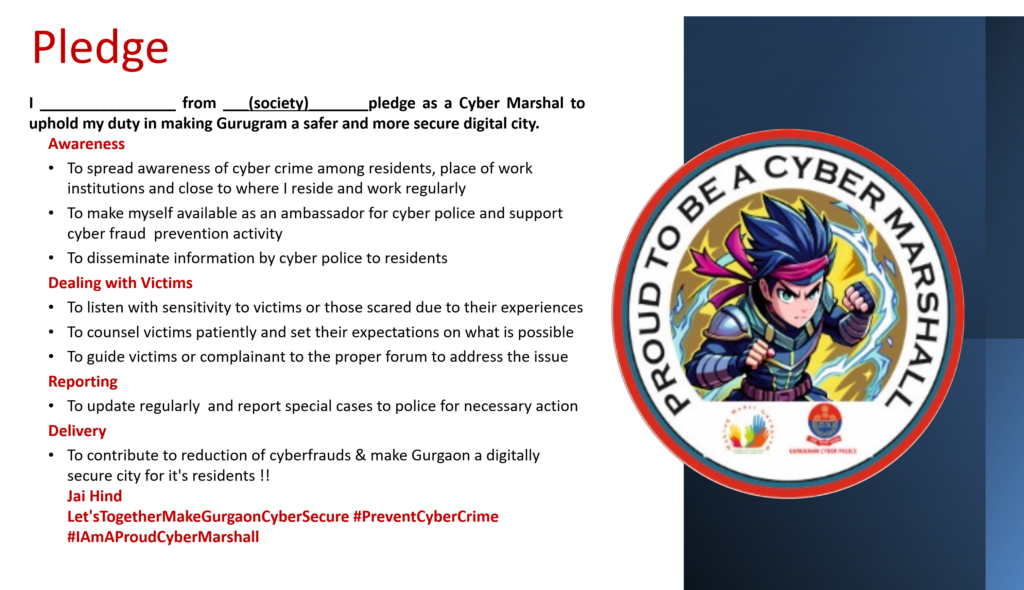
In the Press
